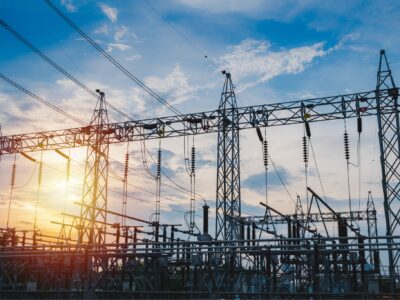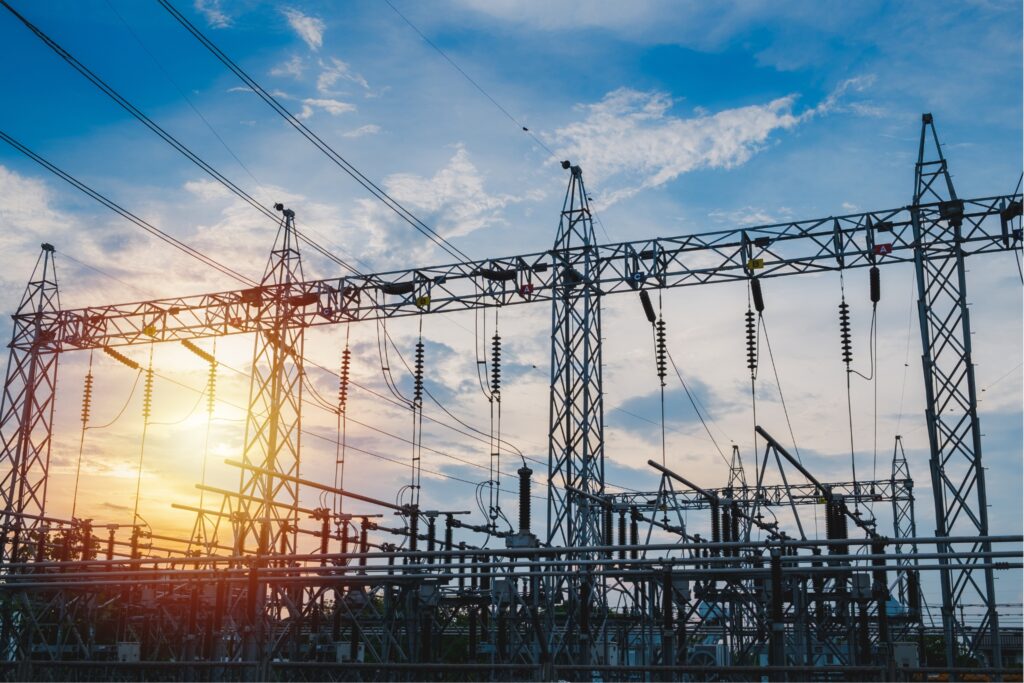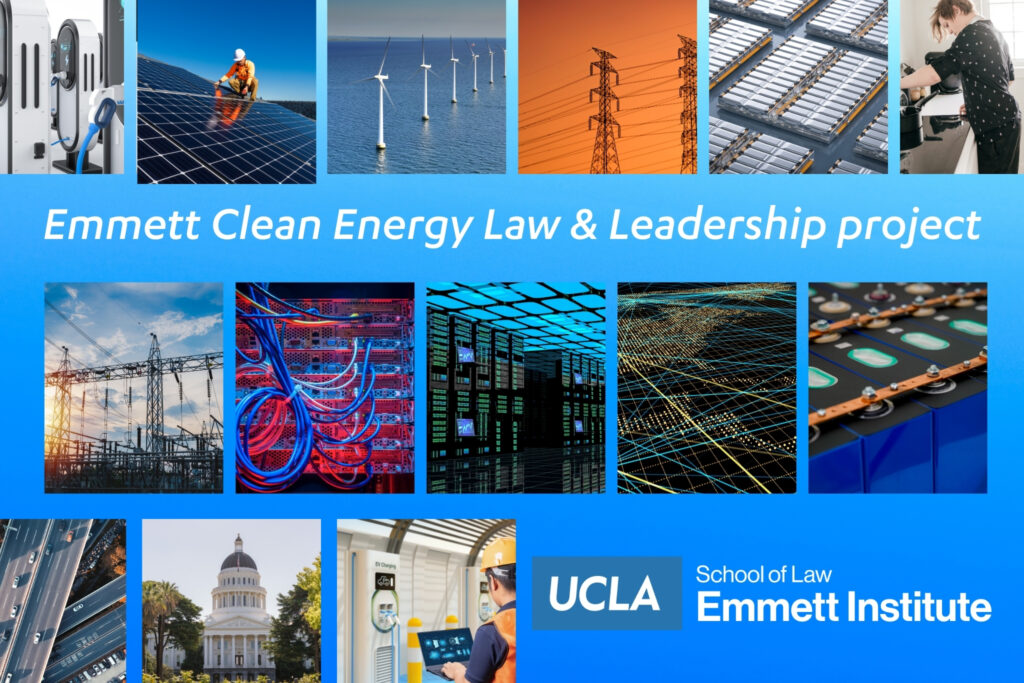A New Energy Project at UCLA Law
Legal Planet: Environmental Law and Policy 2024-09-17


You don’t have to look beyond the front pages of newspapers, or beyond rooftops in your neighborhood to know that we are in the midst of a clean energy revolution, with renewable energy technologies dramatically decreasing in price and increasing in availability. These technologies promise to reduce energy cost burdens for households, as well as reduce climate- and health-harming pollution. However, there are many legal and policy challenges to overcome to ensure that these technologies are deployed efficiently, effectively, and equitably.
These challenges will be the focus of the Emmett Clean Energy Law & Leadership project (E-CELL for short)—a new initiative launching today at UCLA Law.
I recently joined the Emmett Institute as the director for the E-CELL project. I’ve spent over a decade advancing clean energy policy at nonprofits, including RMI (formerly the Rocky Mountain Institute) and NYU’s Institute for Policy Integrity, where I worked on issues ranging from building electrification to distributed energy resources to renewables deployment. I’m excited to work alongside Emmett Institute faculty like William Boyd, faculty co-director and Michael J. Klein Chair, who has long studied public utility regulation, electricity market design, and renewable energy finance. Ruthie Lazenby, a UCLA Law fellow and Legal Planet blogger who is currently writing a series on community solar, is also contributing to E-CELL.
 If you read Legal Planet, you know renewable electricity generation is getting ever cheaper, but in order to make the leap to a zero-emission grid, we must build out the energy storage and transmission necessary to balance the system when the sun isn’t shining, and the wind isn’t blowing. Electrification of vehicles and buildings can take advantage of this increasingly clean grid to eliminate the climate and health-harming pollution from fossil fuel combustion, but our current utility rates and regulations are not designed to account for this potentially significant increase in household electricity demand and decrease in gas usage. We will need legal and policy innovations on all of these fronts in order to secure a clean, resilient, and affordable energy system for all.
If you read Legal Planet, you know renewable electricity generation is getting ever cheaper, but in order to make the leap to a zero-emission grid, we must build out the energy storage and transmission necessary to balance the system when the sun isn’t shining, and the wind isn’t blowing. Electrification of vehicles and buildings can take advantage of this increasingly clean grid to eliminate the climate and health-harming pollution from fossil fuel combustion, but our current utility rates and regulations are not designed to account for this potentially significant increase in household electricity demand and decrease in gas usage. We will need legal and policy innovations on all of these fronts in order to secure a clean, resilient, and affordable energy system for all.
To that end, the E-CELL project will build a bridge between the existing expertise of the Emmett Institute’s energy law scholars and policymakers, helping to inform better decision-making at regulatory agencies and in the California Legislature.
Here’s more about our priority projects:
- Energy affordability and rate reform: Utility rates must evolve to effectively support clean energy resources, while also securing energy affordability for vulnerable, underserved communities.
- Ownership of energy resources: We apply real-world data and analysis to help inform regulatory and policy decision-making regarding resource compensation and utility governance. We also aim to help localities that are considering a move toward public power to structure the most effective governing approach possible.
- Gas transition: We produce media- and policymaker-friendly reports and file comments to support public utility commissions as they build the framework for an effective shift away from fossil gas toward emissions-free alternatives.
- Training Energy Policy Leaders: Energy agencies have unique and complex regulatory processes, which can be tricky to navigate for newcomers, even those with legal training. We will train students to engage in energy regulatory proceedings, including offering opportunities to represent nonprofit clients in proceedings before public utility commissions.
I can’t overstate the tremendous need for new professionals who understand the legal and policy dimensions of the energy transition. We’re excited to expand opportunities for UCLA Law students to gain real-world experience advocating before energy agencies, building their skills, knowledge, and connections as they enter careers as energy professionals. The E-CELL project will expand upon UCLA Law’s existing courses in energy, climate, and regulatory law, as well as renewable energy project finance to offer deep-dive seminars in the most salient energy issues. E–CELL will also build upon existing projects in the Frank G. Wells Environmental Law Clinic and the California Environmental Legislation and Policy Clinic, offering opportunities to engage in dockets at the California PUC and Federal Energy Regulatory Commission.
If you’re looking for partners like UCLA Law in this space, don’t hesitate to reach out. You can stay in touch with us about E-CELL by subscribing to the Emmett Institute monthly email newsletter.